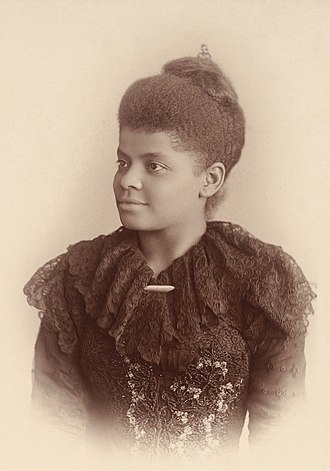From the "If It Had Not Been" Series by the Slice News Journalist Ida B. Wells gives birth to written activism
"The pen is mightier than the sword."
IF IT HAD NOT BEEN FOR IDAIda B. Wells said she never used a two-syllable word where she could use one. Keeping the community informed, the former Mississippi born teacher was an investigative journalist who made it her business to educate Blacks about their rights and their worth throughout her life. Her words would be read or shared with many people who could not read during the Reconstruction period, thus the simplicity in her approach. Her work appeared in the Memphis Free Speech and Headlight newspapers she co-owned. The racism she witnessed in her native Mississippi sparked an interest in seeking racial equality and justice. When a mob destroyed her newspaper office she moved to Chicago.
Wells-Barnett spent the bulk of her career documenting lynching on a one woman anti-lynching crusade. Wells found 728 Blacks were lynched and made it known that the practice was used to police the innocent in post-slavery America, a pro-segregation society.
The journalist went on to become a co-founder of the NAACP and a well-known advocate for Black women's suffrage. She famously joined a massive women's voting rights march in Washington, DC in 1913 and refused to march in the back as organizers had demanded Black women to do. Much like Black pastors, Black writers became trusted messengers in the Black community and newspapers were the earliest from of mass communication that Black had to keep a record of their stories. Instead of merely using her "pen" to inform, Her contemporaries and members of the Black establishment did not readily support her activism while she was alive. Yet her life for Black journalists became a symbol for incorporating activism in one's work. She never stopped fighting for her community using her voice and knowledge no matter how little or how much backing she had.
To some extent the legacy of Ida. B. Wells Barnett is just beginning to get the respect it deserves. She was acknowledged at the White house by Pres. Joe Biden in 2021 when the anti-lynching act that made lynching illegal was signed into law. Ida B. Wells Drive was the first street in Chicago named after an African American. And, she is celebrated among Black journalists who pulled a page from her book to ensure that issues from the police killings of unarmed Black men to the trafficking of Black women is not going unnoticed. If it had not been for Ida B. Wells Black women would not have voting rights to affect the changes to make America a better place for Blacks.

